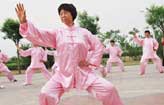Web Comments
Knowledge no longer changes fate?
Updated: 2011-08-17 16:51
By Huang Shuo (chinadaily.com.cn)
"Knowledge can change fate," a well-known notion, has stimulated numerous children in rural areas of China, particularly remote places, to learn and fundamentally improve their livelihood and their families. Studying has been their hope, even a life-saving straw for the future. In old times, Chinese people regarded the process of changing destiny through learning and national exams as "Carps jump over dragon door." However, this jump of changing fate is more and more strenuous and tough for rural students at present.
"It is bound to be hard for youngsters from poor families in rural areas to become elites of society in China," a teacher recently said at an online forum, which sparked a new round of discussion and debate on the uneven distribution of social resources.
The proportion of rural students at leading universities in China has increasingly fallen since the 1990s. The ratio at Peking University jumped down to around 10 percent from the previous 30 percent. According to a sample survey of students at Tsinghua University in Beijing enrolled in 2010, students from the countryside accounted for 17 percent of the total. And in 2010, China’s rural students took up 62 percent of the overall students joining the National College Entrance Examination (or Gaokao).
Educational experts and mass media concentrated on the decline of the acceptance rate of rural students in the Gaokao and analyzed the reasons. The unfair distribution of educational resources in urban and rural areas is undoubtedly the main culprit. When urban children are enjoying kindergarten, preschool education for many children in the countryside is still a blank, which means that Chinese rural children fall behind at the initial phase of their lives.
Urban education has gathered most advanced educational resources and urban students can choose a better school with the advantages of preferential enrollment policy like independent recruitment and bonus points, which further enlarge the educational gap between urban and rural areas in China.
The key part of solving the problem is to promote the integration of rural and urban education and improve the equality in allocating educational resources across the country. The essence of the integration of rural and urban education has determined the boundary of the relative institutional reform. The institutional reform about the integration of rural and urban education mainly focuses on basic education, vocational education and continuing education, among which basic education is the key, and compulsory education is the priority. The reform of education institution that promoted the integration of rural and urban education includes the institutions of student cultivation, educational quality evaluation, educational personnel, educational investment, school enrollment, and school management. The objective of the integration of rural and urban education is the equity of rural and urban education. The equity of rural and urban education includes the equity of quality, difference and compensation. The different educational equity has put forward different requirement to relative educational institution reform.
As for the distribution of educational resources, the authority should firstly allocate more public spending to rural education, and allow students to take their college entrance examinations in other places in order to universalize good education resources and let rural students migrate with their parents to urban areas to receive better education directly and conveniently. In addition, private or foreign capital can play a helping role for the government in joining the rural education programs organized by educational institutions or organizations, such as Project Hope.
Equality in a society is not only relative fairness in wealth distribution, but also equality in opportunities of altering fate for every member of society. The fairness in education sector plays a major part in realizing the equality of the starting point of lives and social equality and justice. The notion of "knowledge can change fate" can become true and the movement among different social layers can be possibly smooth so as to stabilize the current social structure of the country only if everyone enjoys fair educational opportunities in society.
On the contrary, the Matthew Effect, the phenomenon in sociology where "the rich get richer and the poor get poorer," caused by educational inequality, will set barriers on the way to higher level development for young grass-roots even accelerate the status crystallization to threaten social harmony and stability.
It is undeniable that all levels of government in China are twisting and narrowing the gap between rural and urban education in recent years, especially in achieving equality in allocating educational resources. Whereas, the old issue becoming a hot topic on the Internet rings a warning bell for departments in charge of education once again.
The author can be reached at larryhuangshuo@yahoo.com.
E-paper

Going with the flow
White-collar workers find a traditional exercise helps them with the frustrations of city life
The light touch
Long way to go
Outdoor success
Specials

Star journalist remembered
Friends, colleagues attended a memorial service to pay tribute to veteran reporter Li Xing in US.

Robots seen as employer-friendly
Robots are not new to industrial manufacturing. They have been in use since the 1960s.

A prosperous future
Wedding website hopes to lure chinese couples
